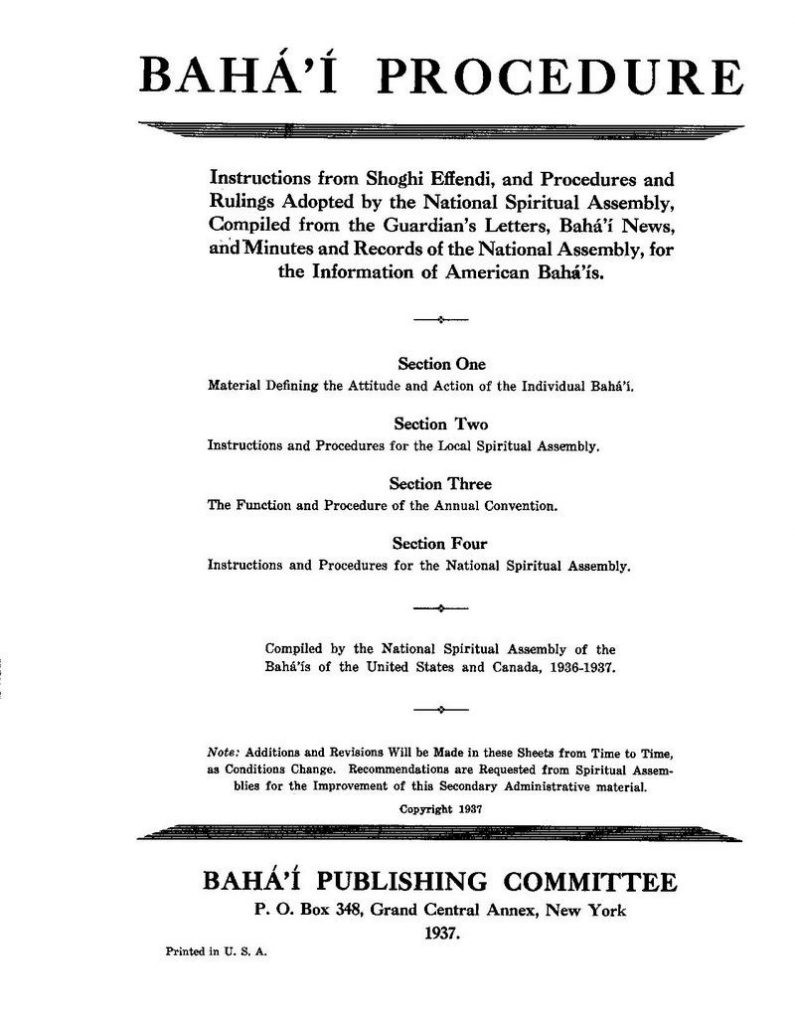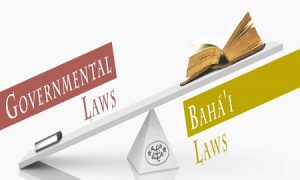Throughout history, some rules have always been applicable and followed and some others have not been welcomed by liberal countries. Tom R. Tyler[1], a renowned psychologist, believes that effectiveness of rules is based whether it derived from the personal self-interest and social values or not.
In every society, complying with the laws is of vital importance and not complying, would create a disturbance in reaching its goals. Sometimes, a rule can be opposing the beliefs and cultures of a society. For instance, banning (or even forcing) Hijab in a secular and liberal country, would inevitably hurt the Muslims (or non-Muslims) and would result in a protest and even the liberals would follow to protest more and all would seek to repeal the inhumane and unjust law.
Yet there is a sect named Baha’ism, which does not have any acceptance of the rights and freedom of its own beliefs and only sees itself obedient to the country in which they reside, even if it opposes their own beliefs. This goes to the limit that the governmental laws supersede the Baha’i laws.
As it has been quoted from Shoghi Effendi:
“Following the laws of the Book of Aqdas is mandatory when it’s doable and not opposing any laws of the country.[2]”
Baha’i Procedure by Shoghi Effendi

Obeying a country’s law is just and necessary to protect citizen’s rights, yet it does not mean that divine instructions should be violated since it is not like a personal belief which can be neglected; unless leaders of that faith see themselves as divine-less. Thus in the case of Baha’ism, a country’s law is simply given preference to the so-called divine legislative system. This means that the Baha’is must always be obedient to the rulers of their own time and place, and disregard their own teachings.
Elsewhere, `Abdu’l-Bahá in his writings uses the term ‘absolute obedience’. Universal House of Justice quotes from `Abdu’l-Bahá:
“The methods of civilization and the beautification of the country must also be encouraged; and also to be inculcated is absolute obedience to the Government and total avoidance of any trace of sedition.[3]”
Having said, the question that Baha’is must answer is that why their divine commandments are so unimportant and devalued to the extent that they must follow the Zionist system of Israel without any questioning or objections.
Why do Baha’is and their leaders apply these commandments only in Israel?
Why do not they do anything against Israeli government and act presumably based on their divine mandate and destiny, while in other countries such as Turkey, Malaysia, Iran, Egypt, etc. where propagating Baha’i faith is considered illegal, preach non-Baha’is and invite them to convert? And when they are confronted they cry out loud for violation of their rights and there is not a person that they have not informed of such.
How can we make sense of this dilemma?
[۱] For more information on professor Tyler you can visit his homepage at Yale Law School
[۲] Baha’i Procedure (Nizamat Baha’i), Page 6
[۳] From the writings and utterances of `Abdu’l-Bahá on Bahá’i Reference Library






